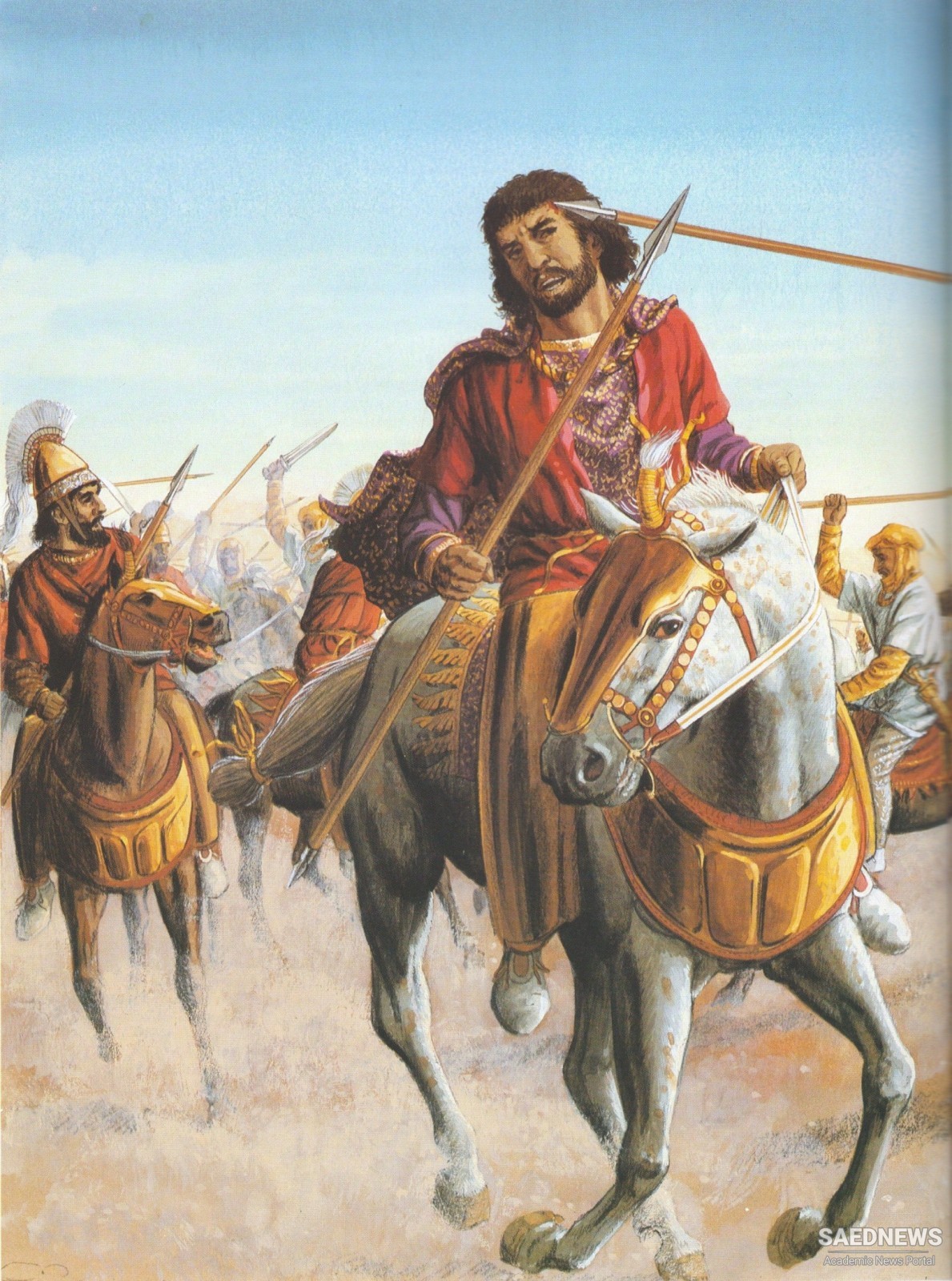This is how Cyrus the Younger carried out this collection of troops: he passed the word to the garrison commanders of all the garrisons he had in the cities to secure men from the Peloponnese as numerous and as good as possible, on the grounds that Tissaphernes was plotting against their cities. For the Ionian cities had anciently belonged to Tissaphernes, having been given to him by the King, but at that time they all had revolted to Cyrus, except for Miletus. In Miletus, Tissaphernes perceived in advance those who were planning to do the same―to revolt to Cyrus―and he killed some of them and banished others. But Cyrus took up the exiles and brought an army together, and besieged Miletus by both land and sea, and he was trying to restore the exiles. And this, then, was another of his pretexts for assembling an army. He sent to the King and claimed that, since he was his brother, these cities should be given to him rather than be ruled by Tissaphernes, and his mother assisted him on this. As a result, the King did not perceive the plot against himself but believed that Cyrus was spending on armies because he was at war with Tissaphernes. As a result, he was not the least bit vexed that they were at war, for Cyrus also sent to the King the tribute that arose from the cities of Tissaphernes that he happened to hold.Another army was being collected for him in the Chersonese, opposite Abydus, in the following manner.f Clearchus was a Lacedaemonian exile. After having associated with him, Cyrus came to admire him and gave him ten thousand darics. Taking the gold, he collected an army with these funds and, sett ing out from the Chersonese,made war on the Thracians who dwelt above the Hellespont; and he was benefi ting the Greeks. As a result, the cities on the Hellespont voluntarily contributed money to him for the maintenance of his soldiers. This army also was thus being nurtured for him without being detected (Source: Anabasis, Book 1).


 Xenophon and Cyrus the Younger: Anabasis and Story of Ancient Monarchy in Persia
Xenophon and Cyrus the Younger: Anabasis and Story of Ancient Monarchy in Persia














































